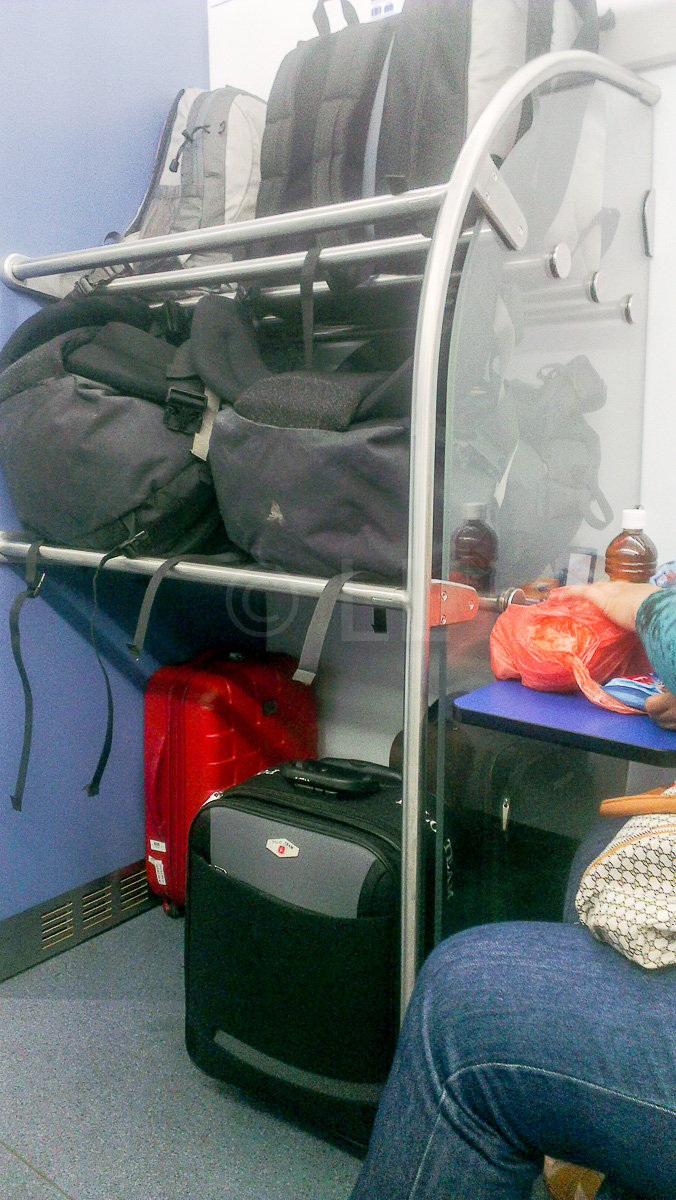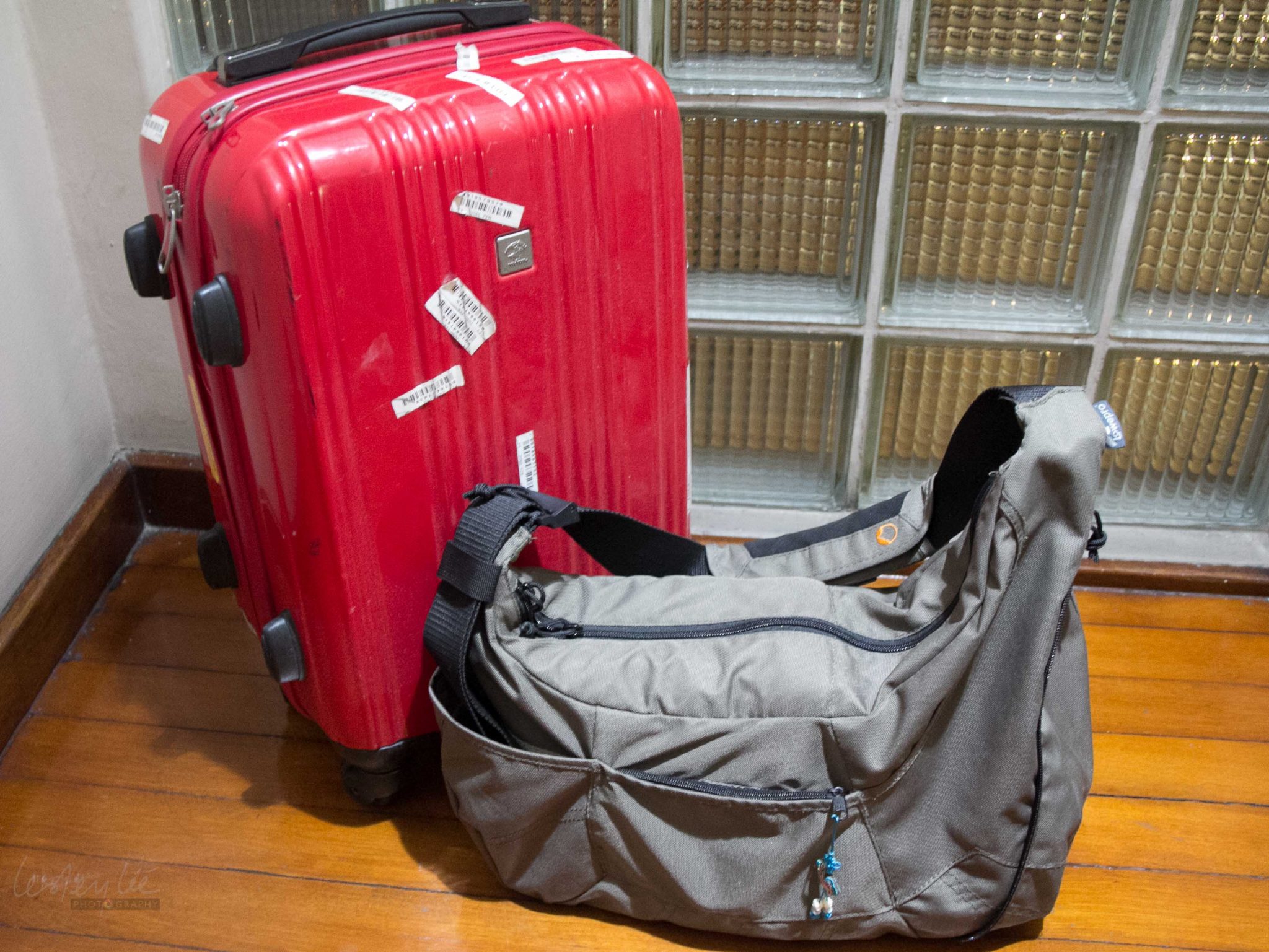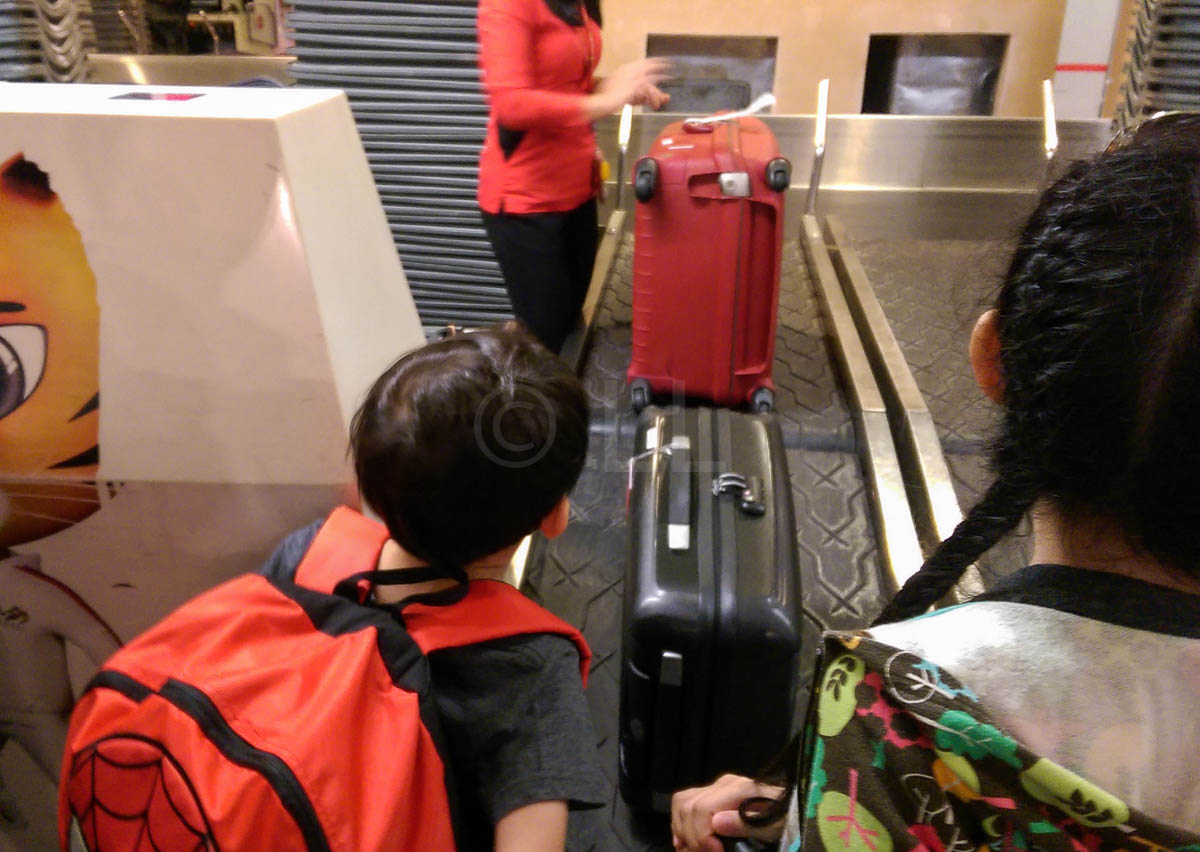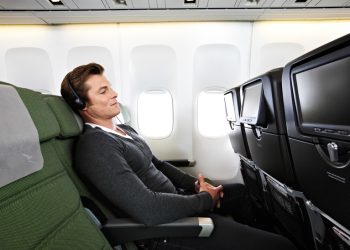Now we’re starting to travel again as the Covid-19 pandemic becomes something we have to live with, we’ll have to remember our previously remembered ‘travel smart skills’. Looking after your luggage is one of those important skills. This includes checked bags, hand carry and everyday bags, backpacks and the like. You can adapt most of these tips, regardless of how and where you are travelling. We’ve also repeated some, in different contexts.
Big luggage
This is the luggage that contains your clothes, toiletries and other assorted items, making up the bulk of your travelling possessions. If you can travel hand luggage only (HLO), it removes a lot of the stress points. It can also reduce your fare as many airlines are adding baggage as an optional extra in their fare offerings. It also means you can head straight to the departure gate, instead of wasting time in the bag drop queue.
Cross border travel
Some of the things to remember:
- Pack and carry your own bags. This is especially important when you’re crossing borders, catching flights, trains or buses, or passing through Customs.
- Never offer or agree to carry anything for anyone else, however well you think you know them.
- There are many stories of unsuspecting travellers agreeing to help a travel companion who find themselves carrying something illegal.
- You can still carry something from mum, unless it’s something like food that won’t pass quarantine.
- Never offer or agree to carry anything for anyone else, however well you think you know them.
- Check the quarantine laws of your destination to make sure you’re not importing illegal substances.
- Australia has some of the strongest quarantine laws and you must declare everything you’re not sure of.
- There are some exceptions, which you can check on Department of Agriculture website, but they must still be declared or you could receive an on-the-spot fine of up to AU$220.
- If you don’t declare and an inspection turns up something, you can also be prosecuted and fined up to AU$66,000 or 10 years’ imprisonment.
- They also have cute little beagles to help them. Don’t try to pat them, they’re working dogs and can sniff out even a slice of bread. If they sit beside your bag, get ready to show what’s in it.
- Other countries or states of the country you are travelling in, have controls on the entry of various types of fruits, flowers and animals and their products.
- Australia has some of the strongest quarantine laws and you must declare everything you’re not sure of.
- Many countries also have export controls on certain items.
- Cambodia, for one does not allow you to take out cultural heritage items without a permit. This may be difficult to obtain.
- Many other countries have similar laws, so check if you can legally take your purchase out, preferably before concluding the payment.
The above notes are common points to note if you are crossing borders, regardless of transport. If you don’t have to take them into account, there are still other things to consider, including that fact that you may be separated from your luggage for much of the journey.
Carousel care
We’ve already talked about this in our piece Keep an eye on that bag but two things that are important are getting to the carousel before your luggage arrives and being able to identify it easily, from a distance.
Identify your luggage
These tips are useful to remember in many situations and can also be used on your hand carry items in certain circumstances. Useful items to take with you are zip/cable ties, packing tape, coloured ribbons. Even a couple of rounds of packing tape identifies your bag and will slow down a possible entry.
Zip ties won’t replace a secure lock, but are they are useful for making sure your bags aren’t tampered with. You can easily cut them off, true but they make an opportunist think twice before bothering. While black or white ties are most common, there are other colours on the market for extra identification and security. Put different colours to jazz it up a bit. Even a reusable tie can stop someone unzipping your backpack.
Cloth covers are available to put over your bag or you could pay for the plastic wrapping available at many departure areas. Decorate with some coloured ribbon! If someone tries to remove your bag from the carousel, you’ll be able to see it from some distance away.
What if it arrives and looks suspicious?
If your bag arrives on an airport carousel with the cable ties missing or the wrong colour combination, don’t take the bag. Alert a security officer and tell them you think your bag may have been tampered with. You may have to undergo a thorough search, but if anyone has planted anything in your bag, you’ll be one step ahead.
Understand local requirements
One good example is travelling to the United States, which has specific baggage lock requirements.
You must make sure your luggage lock is in accordance with their requirements, so they can be opened by security officers using universal master keys. This means your locks don’t have to be cut. TSA approved locks have TSA written on them. You can get more information about these locks on the Transportation Security Administration’s website.
Trains and buses
Most long distance buses require you to store your large luggage in the luggage compartment underneath you. Or, in some countries, on the roof. Trains will generally have racks at one, or both ends of the carriage.
- Take a sturdy bag that’s not easy to tamper with and keep it securely locked.
- Choose luggage that’s appropriate for your trip – backpack/suitcase etc.
- Take only what is necessary, you can usually get toiletries etc as and when you need them.
- If possible choose a seat that has a direct line of sight to your bag.
- If there are multiple stops along the journey, watch to make sure nobody else takes your bag ‘by mistake’.
Travelling alone
- If you prefer to take a window seat, stow your bag under the seat in front.
- This makes it difficult for anyone to tamper with it while you sleep.
- If you need to go to the washroom, make sure your bag is secure and preferably locked in some way.
- One friend uses a very noisy plastic bag to keep her bag in, so anyone with bad ideas will have to cope with the rustling noises.
- If your seat is near the washroom, you can watch as you wait, then be quick.
- Keep valuables either on your person, or in a small toiletries bag you can take when you leave your seat.
- Watch your cabin for strange movement of other passengers while you wait for a vacant toilet.
- Lock or secure bags that are placed in overhead compartments, as they may not be directly above you.
- This story from Facebook shows how hand carry theft from overhead compartments can even occur in Business Class.
Get the right travel insurance
Losing your luggage is not only inconvenient, it’s expensive to replace, not to mention the contents. Make sure you get appropriate travel insurance cover, which, given our experience with Covid-19, should include cover for such troubles. Most don’t, but you should do your research first. If you’re carrying expensive cameras, laptops or smartphones, you should also read the fine print carefully, as these may only be covered in certain circumstances. Make sure these valuable items will be fully covered as making a claim can be a challenge.
Out and about – It’s easy to lose stuff
Good packing comes with practice, but the most basic advice is not to pack anything which you couldn’t bear to part with, especially in checked bags. Sometimes with lost luggage, it’s the bag itself that has been everywhere with you.
How to keep your luggage safe while travelling:
Never leave your bag unattended
Seriously, that means NEVER! Even in Singapore where some people happily leave a handbag on a table or chair to indicate that it’s taken. Even if it’s in your line of sight, be very careful, because it can be gone in a flash. At the beach, in a café, and especially an airport lounge, always keep your luggage with you. Many airports have toilet stalls that are large enough for you to take everything in with you. Make sure your hotel room is secure, good door locks and use hotel safes (check first that they work).
- If you do leave your luggage in your room, make sure you lock your bags. Of course, someone could steal the bag, but you need to make it more difficult for any opportunistic thief. Always keep your valuables (especially passport and money) well hidden on your person, rather than in your luggage.
- If you’re sitting in a café or restaurant, keep your bag on your lap or slip the strap of your bag around your chair leg. We’ve seen someone neatly remove a handbag left under the table while the owner was there. The thief was caught. You should try to secure it to the table in some way. You can purchase bag holders that attach to the table and are discreet.
- Be careful when answering ‘surveys’. This is a common trick in many parts of Europe, when you may be surrounded by a group, one of whom will ask you touristy questions while another will swipe your phone or other small items.
- On a long distance train? Luggage storage is usually at either / both ends of the carriage. Try to have a line of sight to your bag or make sure that you are watching at intermediate stations, in case someone else picks up your bag.

luggage storage
Hand luggage and daypacks
- Don’t leave the zips undone or pockets flapping open – you’re just making it easy for pickpockets, or have it to fall out.
- In crowded areas, like markets or train stations, it’s wise to wear your daypack on the front – you might look silly hugging your bag, but at least it’s not exposed to the world. You think you can tell if someone is reaching into your bag, it’s isn’t always the case and it another familiar claim story that may or may not be accepted.
- Always wear handbags should be worn across the body with the strap diagonally over one shoulder.
- You can also buy camera bags that work like this as well.
- Never let your bag hang loose from your shoulder as it becomes an easy target for a snatch-and-run thief.
- Beware of walking close to the edge of the road as thieves on motorcycles are very common is some countries. Long straps which can easily be grabbed by a passing motorcyclist. You may also be dragged on to the road and injured or worse.
Stay focused.
Keep your valuables with you
If you can’t keep your valuables on your person when you’re travelling, make sure you pack them into a small hand carry bag or backpack you can keep close. This is important on buses, where your main luggage is on top, or under the passenger compartment.
If you have to cuddle it for the duration of the journey, then perhaps you should travel HLO on that next trip.








This Post Has 0 Comments